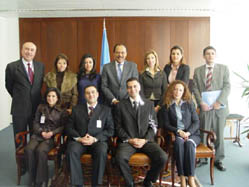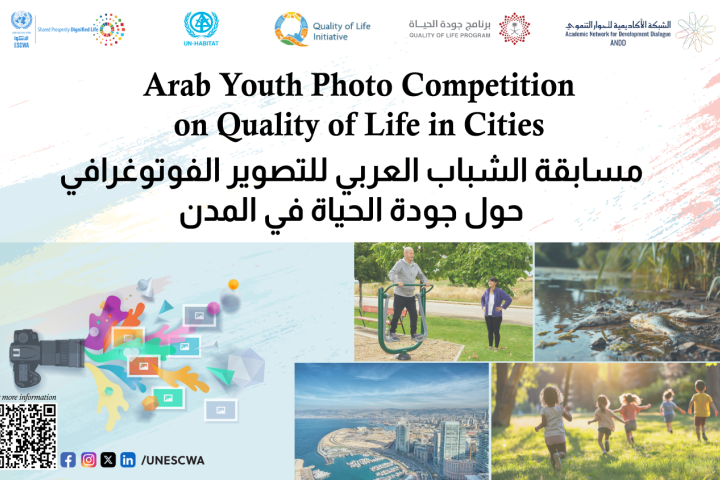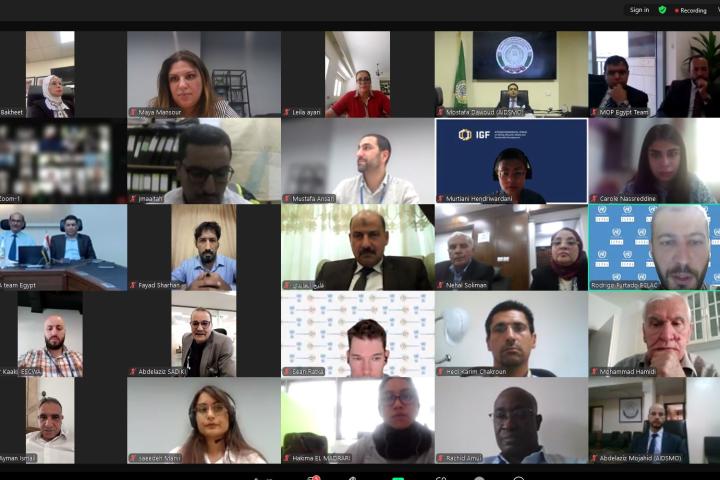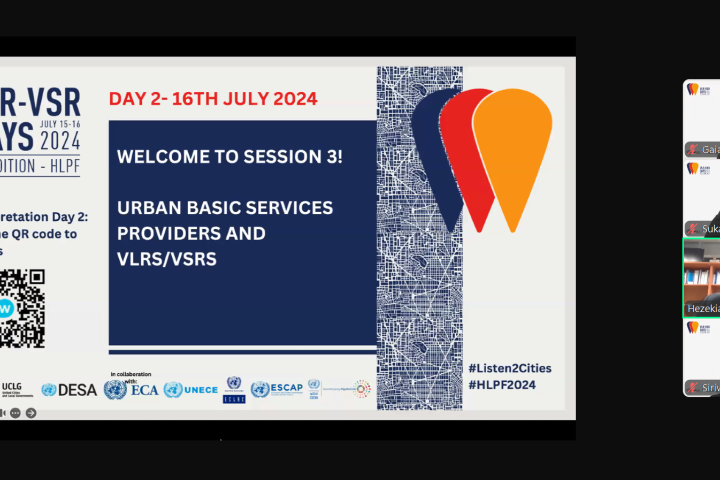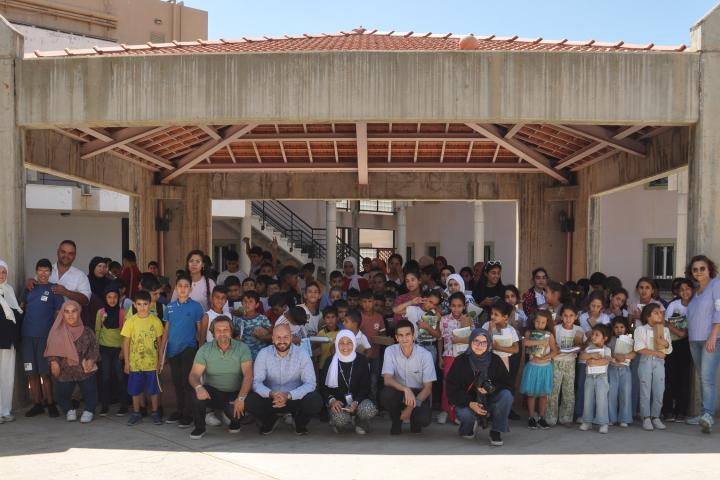As every year, the UN House opened its doors on Wednesday 6 February to a yearly tradition: the visit of a group of young new judges who came on a tour of its premises, and were introduced to the recovery work of the UN in Lebanon and of UN-ESCWA activities in the region.
The judges, who will be the newest graduates of the Lebanese Institute of Legal Studies, met with UN-ESCWA Chiefs of Divisions, or their representatives, as well as with the Recovery and Coordination Advisor to the UN Resident Coordinator (UNRCO) in Lebanon.
Mr. Fernando Hiraldo, Recovery Coordination Advisor/UNRCO, briefed the judges on UN recovery activities following the July 2006 war in Lebanon, which were twofold: recovery projects that address urgent post-war needs, and in a later phase, projects to restore lives and livelihood of citizens. Mr. Hiraldo also addressed the continuous work of the UN in Lebanon, and its efforts towards the establishment of sustainable development.
Visitors also got an overview of UN-ESCWA activities, both regionally, and locally. Mr. Mohammed Osman, Senior Economic Affairs Officer and Sustainable Agriculture and Rural Development, spoke about the work of the Sustainable Development and Productivity Division (SDPD), namely on issues regarding policy and the use of resources for environmental and developmental sustainability.
Mr. Walid Hilal, Team Leader of the Social Policy and Participatory Development, focused on the correlation between society and social policy on one hand, and the independence of the legal system on the other.
Mr. Nabil Safwat, Chief of the Globalization and Regional Integration Division, introduced the visitors to the work of the Division, namely the projects on Integrated Transport System, in the Arab Mashreq (ITSAM), the Agreement on International Railway in the Arab Mashreq, and the Agreement on International Roads in the Arab Mashreq.
Mr. Ayman El-Sherbiny, First Officer of Information and Communications Technology (ICT) Policies in the ICT Division, shed light on the developmental aspect of ICT, which is usually dealt with as a technical issue.
Next, the judges met with UN-ESCWA Executive Secretary, who enquired about their studies and urged them to take on their duties as responsible citizens, whose combined work serves their country in the best of ways.
The Institute for Legal Studies is a part of the General Directorate of the Lebanese Ministry of Justice. It was established in 1961, and currently comprises three sections: Judicial, Financial and Administrative.
